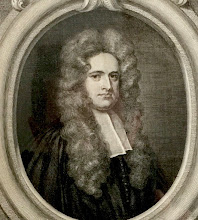Monday, May 01, 2023
“Expert” Opinion
Even in the most rigorous attempts at analysis, academics and intellectuals bring their worldviews along with them when espousing their insights. Like anyone else, they typically begin their appraisals with preconceptions and biases. In spite of impressive credentials, It’s difficult to truly arrive at completely honest and unbiased conclusions. For the layman and casual observer, the best we can do is to appraise a variety of contending viewpoints and apply our knowledge of human nature and historical precedent.
As long as we rely solely on “expert” analysis, we’ll continue to fall victim to demands for compliance to establishment dictates regarding bogus vaccine mandates, looming ice ages or global warming, or a host of other real, embellished, or concocted horrors ultimately designed to compel obedience.
This is not to say that every investigator has a personal political axe to grind. Certainly there are people who are experts in their field who are seeking higher truths. The burden in this circumstance ultimately lies with the common observer who, more often than not, fully accepts what they are told by a media certified “expert.” In this skewed world, the BBC, Wikipedia, and the Southern Poverty Law Center have the final say on truth. They tout themselves as voices of moderation. There are many observers who actually believe that they occupy the “center” of political discourse because they watch the BBC or PBS et al. Opposing views are labled “misinformation,””conspiracy theories,” or, — my favorite — “dangerous.”
As usual, the real threats come from those seeking power and imposing rigid ideological schemes. Their appraisals being a mere afterthought in support of conformity.
There are certainly experts that address practical issues and are thus less prone to spinning theory to their liking. Expertise plus media is a different thing though. It’s sometimes laughable when one sees the former expert advisors to past administrations that CNN is able to dredge up from academia. New York Times economist Paul Krugman told us that Donald Trump would cause a depression — opps, ‘got that wrong. Of course every academic, regardless of their area of “expertise,” is an expert on Climate Change. Treasury Secretary, Janet Yellen (an “expert”) tells is inflation is transitory and having an abortion is one method of dealing with the issue (yes, she actually said that).
There has always been a conflict between the intellectual caste, common citizens, and citizens of commerce. Free society allows for variety, innovation, and advancement. People are free to consume or reject ideas and information sources as they see fit. Rigid systems of top-down control inevitably leads to stasis, decline, and meaningless lives of toil and unhappiness. From Plato’s “Guardians” to the World Health Organization (a lapdog of the Chinese Communist Party), the elite’s goals have always been the reining in of what some now call “useless eaters.” If one listens to the likes of current communists in government today (“AOC,” et al.), anyone who is even vaguely conservative is fair game for arrest and punishment. Almost all firing squad systems began this way. Fervent ideologues morph quickly into punitive state actors once power is fully achieved.
Free-market society is often accused of fermenting meaninglessness and sterile materialism but wasting one’s life choices it’s not the fault of freedom itself. Why should anyone be deprived of interests or creative expression merely because there are others with few interests or lack of desire to create? Should artists be deprived a canvass because their neighbor would use the same liberties to stuff themselves with junk food in front of a television screen? Freedom needs to be a standard across the board. The fact that there are some who fail to utilize their freedoms or benefit from them is no cause for depriving others of free volition.
A host of new expert arbitrators have emerged in the internet era; partisan “fact checkers,” opinion pollsters, and Wikipedia. The last noted “information source” is quite useful when looking for quick information on artists, composers, or mundane geographical knowledge. Wikipedia’s take on anything controversial is laughable. Any person, event, or institution that is even slightly conservative is typically branded as “far right,” “alt-right,” or a “conspiracy theorist.” Not so for anyone on the extreme left. They are politely labeled “left-leaning” or “progressive” (the left’s favored self description for anyone from busy-bodies to communist autocrats).
In the end, it’s useful to give knowledgable people a hearing. Fortunately not everyone is a partisan hack, though these days such people seem to show up often in establishment media. Healthy skepticism has always been a reasonable thing to have when seeking something akin to the truth. Now more than ever it’s beneficial to “consider the source” of information. Not every expert is an academic snake oil salesman but not every expert offers the final word on truth either.

